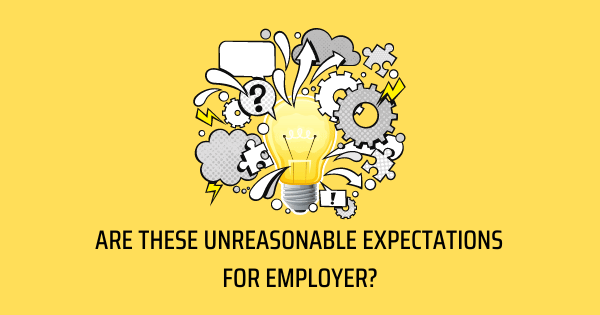Is This An Unreasonable Question For Employers To Ask?

On the 9th of November 2022, the Irish government approved the integration of the right to request remote work for all workers into the Work Life Balance and Miscellaneous Provisions Bill. Since this has come out, most employers have read article upon article persuading them of the benefits to offer remote work to their employees assuring them they will see a difference in their workforce productivity.

Research:
Positive research like Stanford study of 16,000 workers over 9 months found that working from home increased productivity by 13%. However, further research from the University of Chicago found that 14% of their subjects were less productive working from home. This impacted the findings to show only a 7% higher level of productivity overall when compared to working in the office.
Health and Safety:
While the overall research shows a favourable ROI by offering blended work environments, the legislation emphasizes the responsibility for workplace Health and Safety (H&S) on the employer.
“Responsibility for health and safety at work rests with the employer whether or not that work is being done at the employee’s home .”
– Health and Safety Authority.
Injury Claims:
Last year there was reports of a surge in people aged in their 20s and 30s with symptoms of back pain dubbed by the media as “Covid Back”, as a result of poor working-from-home conditions. In 2021 a German court ruled that a man who slipped while walking a few meters from his bed to his home office can claim on workplace accident insurance as he was technically commuting.
Appealing to the Market:
While reports of official claims to Irish businesses of workplace injury by remote workers have gone under the radar, there are more companies appeasing our candidate favoured employment market and their desire for a blended work environment.
As previously mentioned, legislation is not written in the employer’s favour and instances of workplace injury by remote workers are not unheard of. Now that organisations are expected to expand their workforce in 2023, to meet their plans for business expansion, businesses are competing in a tight market and offering hybrid work environments off the bat.
Conclusion:
While this is an attractive to job seekers, are employers increasing their insurance and liability costs unnecessarily? Should they be asking applicants if they have a designated home office upon application? Should this be a requirement, and should they even consider those who don’t?
Continue reading about employee benefits with our related articles: Employee Benefits Management, Hybrid and Working-From-Home Policy.
Are you searching for a job? Apply for our latest positions here.